Becoming Singaporean: In the shoes of a Filipino migrant family
Andre and Vicky Cruz moved to Singapore with their four children in 2007. Here’s how a family faced challenges with open minds and resolve, and made this place their home.

The Cruz family, made up of Andre, Vicky and their four children Crish, Carl, Valerie and Alex, moved to Singapore from the Philippines in 2007.
SINGAPORE: When Andre and Vicky Cruz took their eldest daughter on a holiday to Jakarta in August 2009, the last thing they expected was a phone call from her concerned school teacher.
Crish, then 12, had missed the school’s extra revision class for the Primary School Leaving Examination (PSLE) – which was just weeks away. “We were surprised – we realised like, wow, that’s a really big deal!” recalled Andre of how clueless they were.
“I didn’t even know what the PSLE was, until three months before I was going to take it,” Crish added.
This is an amusing anecdote that the family of six, who moved to Singapore in June 2007, enjoy telling when people ask them about the differences between life in Singapore and their native Philippines.
The Cruzes have amassed a wealth of stories – many humorous, some challenging, others uplifting – about their experiences as migrants from a culturally different society making a home in Singapore. The latter was a process that took time, resolve, and open minds.
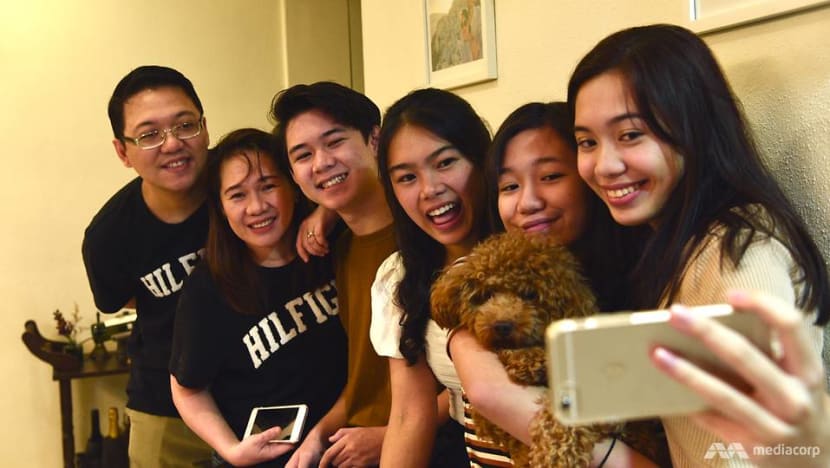
CULTURAL MISUNDERSTANDINGS
The Cruz family moved to Singapore when Andre got a job offer as a programmer at an investment bank. They thought it would be a great place to raise and educate Crish, Carl, Valerie and Alexandria, who were then aged 11, six, three and one respectively. They took up permanent residency within nine months.
What they didn’t expect, early on, was to read comments online about foreigners stealing local jobs. “It definitely was not our intention to take someone's job,” said Ande, 44.
Another time, Vicky was pushing Alexandria in a stroller when a security guard asked her where her “mum” was. “I was thinking, oh, my mum is in the Philippines,” Vicky said – and then she realised, he’d assumed she was a domestic helper.
They resolved not to take such reactions and comments by a minority too personally. “We have to let go of these things,” she said. “Or it won’t help us in our stay here.”
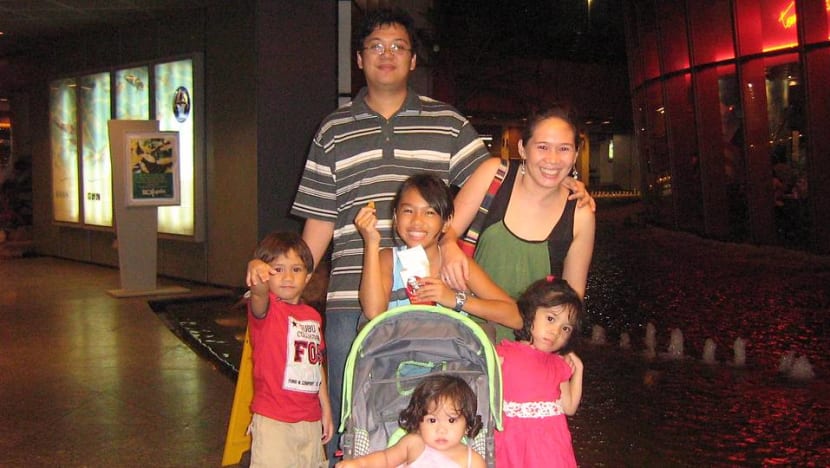
It took time to pick up local social norms. Once, the family even got a visit from a police officer: Unfamiliar with the communal etiquette of high-rise living, they had been a little loud in putting their children to bed, and a neighbour had complained.
Taken aback at first, upon reflection, Vicky said: “We accepted that fact that we were being noisy, and we didn’t get complaints anymore”.
They were tentative about socialising, as they didn’t always understand the nuances of the way Singaporeans talked, including in Singlish. “I’m sure they also had a hard time understanding us,” added Andre.
They also laughingly recalled other faux pas that must have puzzled onlookers. Like when Andre first took a public bus, not realising that those in Singapore halted only at designated bus stops, unlike buses in the Philippines.
“I kept pressing the button and expecting the bus to come to a halt at once, but it didn’t,” he said. “I had to walk a very long way back (from the bus stop).”
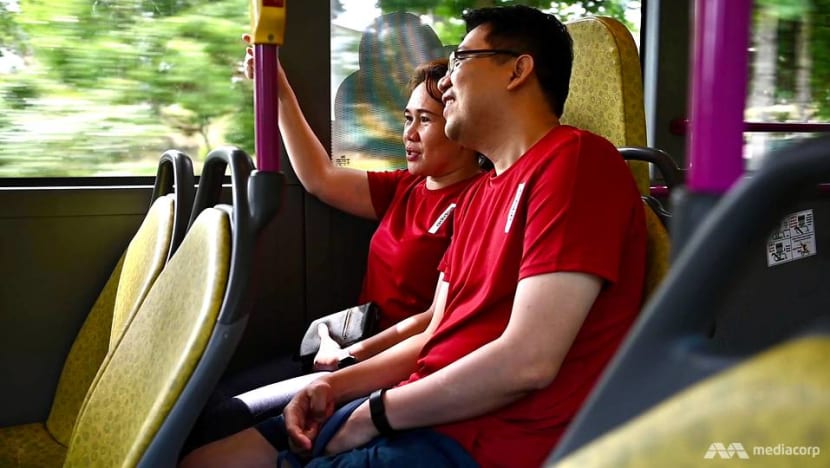
THROWING PARTIES AND VOLUNTEERING
Understandably, the Cruzes at first hung out more often with other Filipinos. It might have been tempting to keep things that way. But they resolved to be “open minded” and learn the norms of their new home.
Said Andre: “We’re guests here, right? We can’t expect people to adjust to us, we have to adjust to them.”
And when they reached out to make Singaporean friends, that was a turning point, they said.
Stay-at-home-mum Vicky invited the neighbours over for barbecues and birthday parties during which, Filipino-style, there’d be singing and dancing; and the family also found a community of friends at Central Christian Church.
One of them, Agnes Tan, remembers the effort the Filipino couple made to reach out. “They were always very willing to explore and join us in all sorts of activities and trips,” she said. “And they’ve opened up their home to us a lot over the years.”
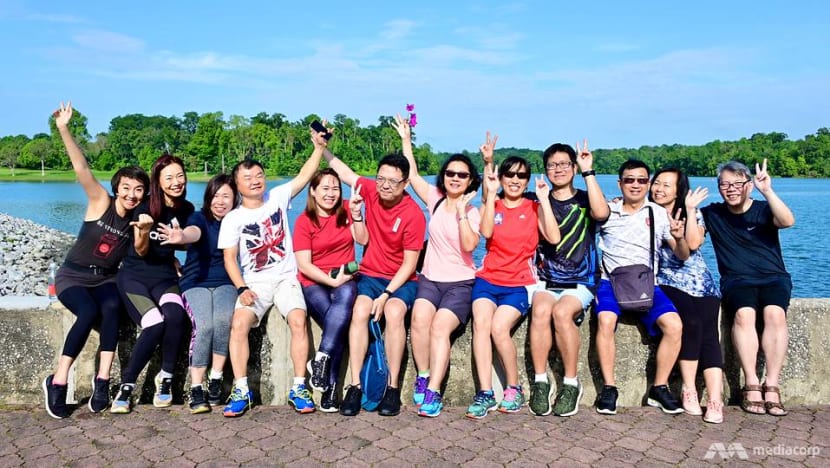
It took about a year, said the Cruzes, to be fully comfortable around Singaporean friends, who helped them in many ways.
When Vicky had trouble finding a school for Crish – none of the 10 or so she approached had vacancies for international students – one of Vicky’s friends suggested that she try Canossa Convent. Crish secured a place there.
It was also a friend who encouraged the family to volunteer their time. Since then, for the past eight years, they’ve been helping out with HOPE worldwide (Singapore).
Several times a year, they befriend and serve breakfast to rental flat residents in Punggol. They feel it’s opened their eyes to yet another facet of their adopted home. “It’s our own little way of giving back,” said Vicky, to which her husband added: “We can do more.”
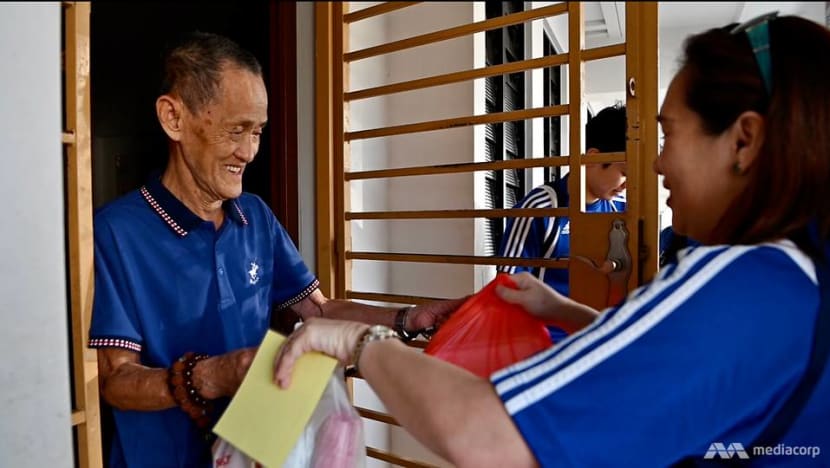
FEELING DIFFERENT
Oldest child Crish had the hardest time adjusting initially.
At an age where fitting in was all that mattered, a pre-teen Crish found herself an outsider from the minute she opened her mouth.
“It was very difficult to make friends because I could barely speak English, or even Singlish,” she said. Their brand of humor, “what they play, what they like to do … it was all so very different from my friends in the Philippines.”
Desperate to fit in, she found herself practising common Singlish phrases in front of the mirror, and watching local television shows to try to change her accent. At a low point, she even thought of begging her parents to send her back to the Philippines.
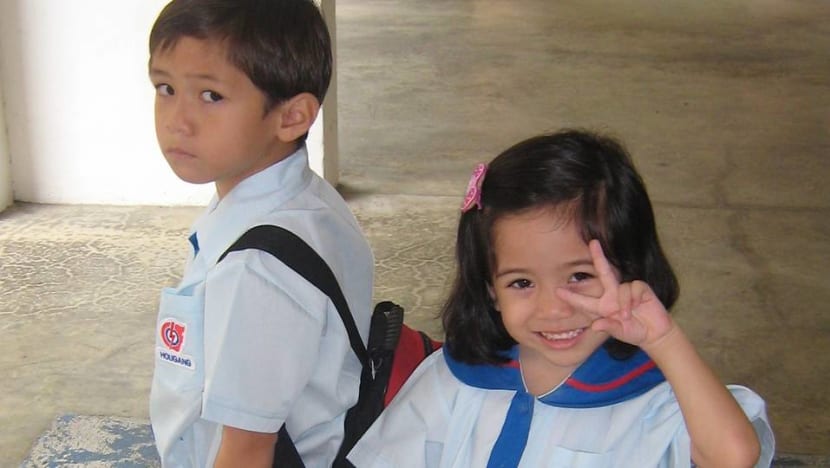
But in secondary school, things got better – she stopped feeling so different. “And I think it was because (my friends) didn’t treat me as someone who was different,” said Crish, now 23.
Meanwhile Carl, being younger, had found it easier to make friends from the start. “I don’t think the kids around me cared very much that I was different,” he said.
On occasion, friends make thoughtless jests. Once, Crish said, a good friend told her jokingly to “go back to her country”. “It affected me a lot more than I thought, because I felt more at home in Singapore than in the Philippines,” she said.
Carl, 18, got teased about being a “domestic helper”. He doesn’t see it as an insult, but it annoyed him because “it’s like belittling the vocation of a maid”.
The friends apologised when Carl or Crish spoke to them about it; but the siblings also understand their friends don’t mean those comments, and take the teasing as a sign of how comfortable their friends are with them now.
Both siblings remain close to the friends who reached out to them early on. Said Crish: “If they had not, it would have taken me a lot longer to start mingling with Singaporeans.”
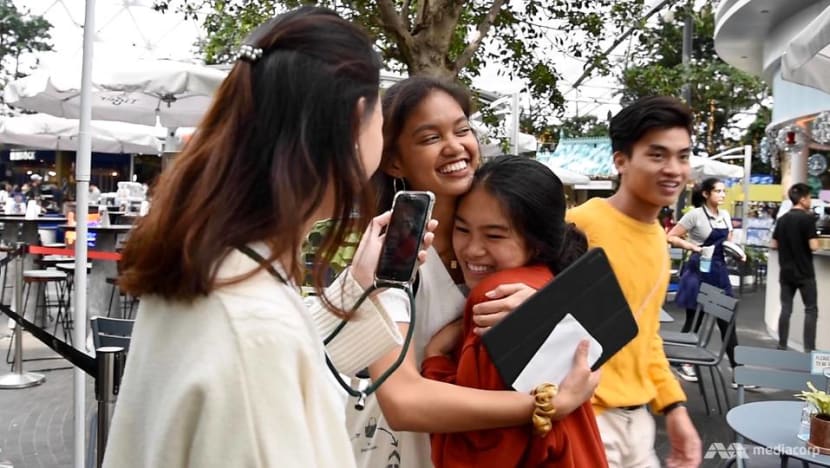
THIS FEELS LIKE HOME
Last year, the family applied for Singapore citizenship – a measure of how much this place now feels like home.
What tipped their decision? “We came to the realisation that our children had no intention of going back to the Philippines,” said Andre.
Crish said: “We’ve build such a strong community here that it would be so difficult to leave… Definitely I’m planning to get married here, have my kids here.”
They list the ways they’ve become Singaporean-ised: Addressing older folks as “uncle” and “aunty”, living in the HDB heartlands, craving char siew noodles… and learning to freak out over PSLE results (six years after Vicky’s nonchalance over her daughter’s exam, “I cried when I got (Carl’s) results”, she joked.)

The change is most obvious when they’re abroad. When they visit the Philippines, said Andre and Vicky, Filipino relatives comment that they walk and talk too fast, and that their children speak with a Singlish accent.
Meanwhile Carl will soon be enlisting for National Service, a rite of passage he’s actually looking forward to. “I think it’s a good break from all the studying,” said the teenager who’s gotten advice from older friends about army life.
Andre is excited for him. “Many of my friends talk fondly about their NS days, and they always tell me stories,” he said.
“One day, my son will also have these stories.”
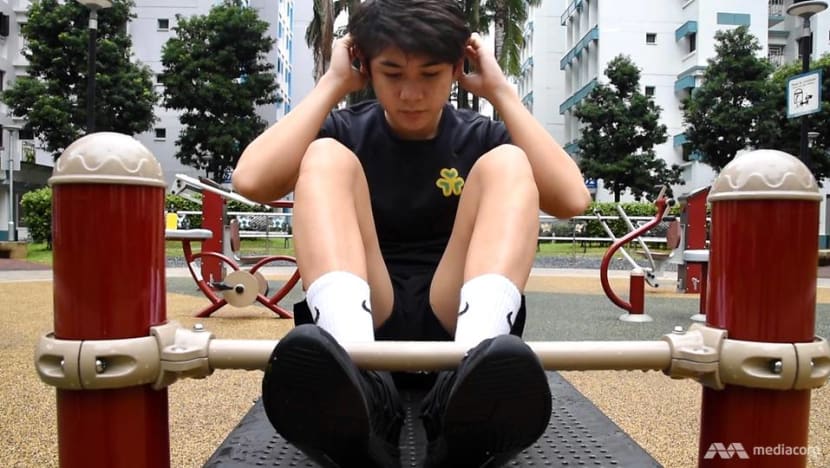
GRAPPLING WITH IDENTITY
While they see their future is in Singapore, it remains important to Andre and Vicky that their children treasure their Filipino roots and retain “important values” like being hospitable.
“Sometimes, my dad tests me on my Tagalog,” said Valerie, 16, laughing. “But it doesn’t usually go too well.”
It is ironic that the youngest, Alexandria – who was barely one year old when she came to Singapore – is perhaps the most attached to her roots. When the prospect of giving up their Filipino citizenship was first broached, she felt torn.
“Even though I couldn’t speak Tagalog, I wanted to maintain just a bit of my Filipino identity by keeping my passport,” the 13-year-old said. Now looking back, “I think it was because I just wanted to be different… I realised that if I moved to the Philippines, I would really miss Singapore, the food and my friends.”

Yes, there are things the family dislike – keyboard-warrior snipes about “foreigners”, for instance, that make Crish wonder “what more we have to do to prove we’re ‘Singaporean enough’?”. There’s also how some Singaporeans treat their domestic helpers unfairly. “This strikes close to home for us,” said Andre, who respects the sacrifices his fellow Filipinos make for their families.
But no real love story is perfect, and make no mistake – this is one. “We have fallen in love with Singapore,” said Vicky simply.
How far are they willing to go to prove it? “I promised myself that if I were to be granted Singapore citizenship, I’ll eat durian,” quipped Andre.
This story by CNA Insider was done in collaboration with Gov.sg.
Watch the video: (8:57)














